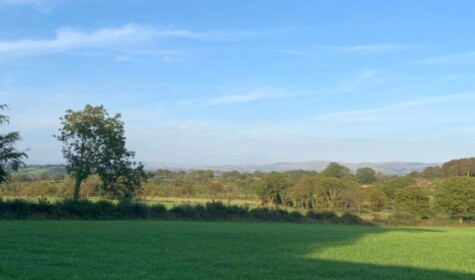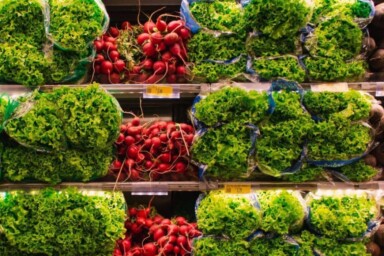Mindful of this responsibility, at Holden Farm Dairy, we are making big efforts to play our part in this knowledge transition. We have an old threshing barn, a beautiful building in which we look forward to hosting future farm events, the first of which is the annual weekend gathering and AGM of the UK Specialist Cheesemakers’ Association in July. Hopefully the weather will be fine, but even if it isn’t, we are ensuring that the building will be warm and cosy if the conditions are inclement and that we have adequate facilities for hosting significant numbers when the occasion arises, one of which will hopefully be an SFT hosted weekend gathering which will take place on the 6th and 7th August – save the date if you are interested!
One of the reasons why I believe farm educational stages will form a central part of the knowledge transfer process is something I heard about children, which is that they remember 80% to 90% of what they do and see, and a far lower percentage of what they are told or read. This idea of seeing is believing I think holds the key, not just for children but for young people seeking a career in agriculture and for many thousands of practicing farmers who are realising that it might now be possible to produce food working in harmony with nature if the financial and policy environment shifts in such a way that this becomes economically possible. The format and the programme for knowledge transfer events of the kind that we will be hosting is interesting and important. My feeling is the best formula is a combination of farm walks, talks and discussion sessions. What I’ve realised over many years is that you can read a book about something with great interest and even remember quite a lot of it, but what I’ve noticed again and again is that if you come back to what you learned many years ago when you have verified it through practice and experience, you come to a much deeper understanding of what you might already know with your head but have not taken in at a deeper level.
On that theme, I think farmers often underestimate the amount of knowledge they hold, since they take it for granted that they can cast their eye over a field or an animal and immediately know what is wrong with the crop or the cow or know what needs to be done, which might be weather dependent or time dependent and therefore impart ‘an ache of urgency’ in relation to the task that is required.
If it is true that we only have 10 years or so to bring about the great transition towards regenerative and sustainable farming systems, then our need to create an informally coordinated network of beacon farms, hopefully working collectively to become more than the sum of their parts in the educational process, becomes absolutely imperative.






